Did you know that over 60% of adults in the West have tried at least one herbal supplement—and that Traditional Chinese Medicine (TCM) adaptogens are among the fastest-rising trends in wellness? Let’s explore why this ancient wisdom is captivating the modern scientific mind.
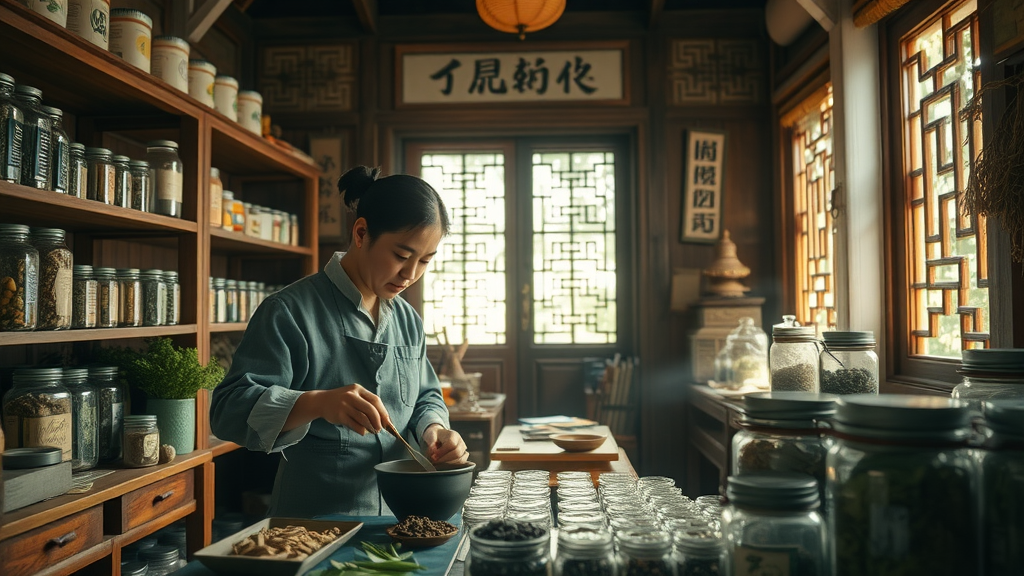
What You'll Learn: Explore the bridges and boundaries between traditional Chinese medicine and modern science in hormonal health. Discover time-tested adaptogenic Chinese herbs, dive into the latest clinical trials, and get clear tips for safe, effective hormone balance using centuries-old wisdom and scientific rigor.
Exploring Traditional Chinese Medicine and Modern Science: The East-Meets-West Approach to Adaptogenic Herbs
The burgeoning interest in traditional Chinese medicine within modern medical circles isn't just a fleeting trend—it reflects a shift toward holistic, evidence-based approaches for hormone balance. While Western medicine traditionally relies on isolated biochemical pathways, Chinese medicine takes a broader view. In TCM, the health of the human body is seen as an interplay of interconnected “systems,” aiming to harmonize body, mind, and environment. This philosophy underlies the use of adaptogenic herbs to restore hormonal wellness, making TCM especially relevant for today’s stress-driven world.
On the other hand, modern science brings the precision of controlled clinical trials , standardized dosing, and biomarker tracking. Researchers now actively study which adaptogenic herbs from Chinese traditions genuinely modulate key hormones—like cortisol, estrogen, progesterone, and testosterone—under laboratory conditions. This emerging collaboration between ancient and modern approaches is revolutionizing how we address hormone imbalance.
How Traditional Chinese Medicine Views Hormone Balance
Traditional Chinese medicine operates on principles radically different from Western frameworks. Instead of targeting individual hormones or organs, TCM focuses on the body's balance of “Yin and Yang,” its circulating “Qi and Blood,” and the dynamic Five Elements theory. According to tcm theory , symptoms like fatigue, mood swings, or irregular cycles result from disharmony among these core forces. Rather than simply masking symptoms, TCM practitioners use herbal formulas—and supportive therapies like acupuncture—to restore systemic harmony.
-
Yin and Yang
-
Qi and Blood
-
Five Elements theory
For example, women with hormone imbalance might receive customized herbal blends to “nourish Yin” and “move Qi,” addressing both root causes and surface complaints. The nuanced, pattern-based diagnosis of TCM stands in contrast to protocol-driven Western medicine but increasingly finds common ground through integrative care clinics.
Modern Science and Evidence-Based Adaptogens: The Biological Lens
Scientific interest in adaptogenic herbs from traditional Chinese medicine has exploded over the last decade. In lab settings, researchers use genomics, metabolomics, and clinical studies to test these herbs’ effects on key hormones. Findings demonstrate that some TCM herbs, like ginseng and schisandra, measurably influence the neuroendocrine (ne) system—even lowering stress hormones and raising support hormones critical for energy, sleep, and mood.
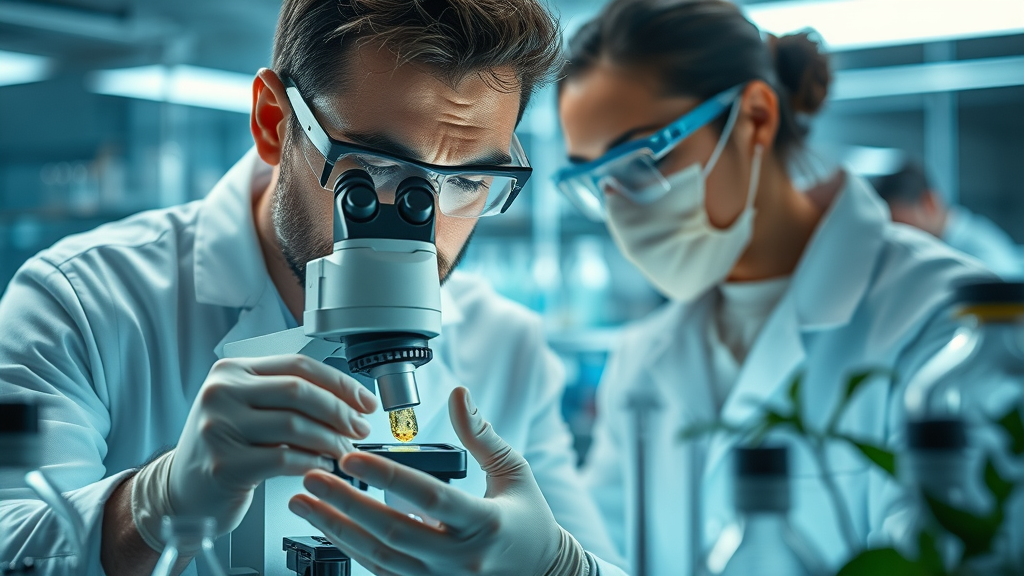
-
Cortisol
-
Estrogen
-
Progesterone
-
Testosterone
By tracking hormone levels before and after supplementation, clinical trials bring real-world rigor to ancient remedies. The result? A growing number of mainstream physicians are open to integrating select Chinese adaptogens, provided their safety and efficacy are clear. This evidence-based approach honors both tradition and biomedical science—ushering in a new model for hormone health.
A Brief History: Traditional Chinese Herb Use and Herbal Medicine for Hormone Balance
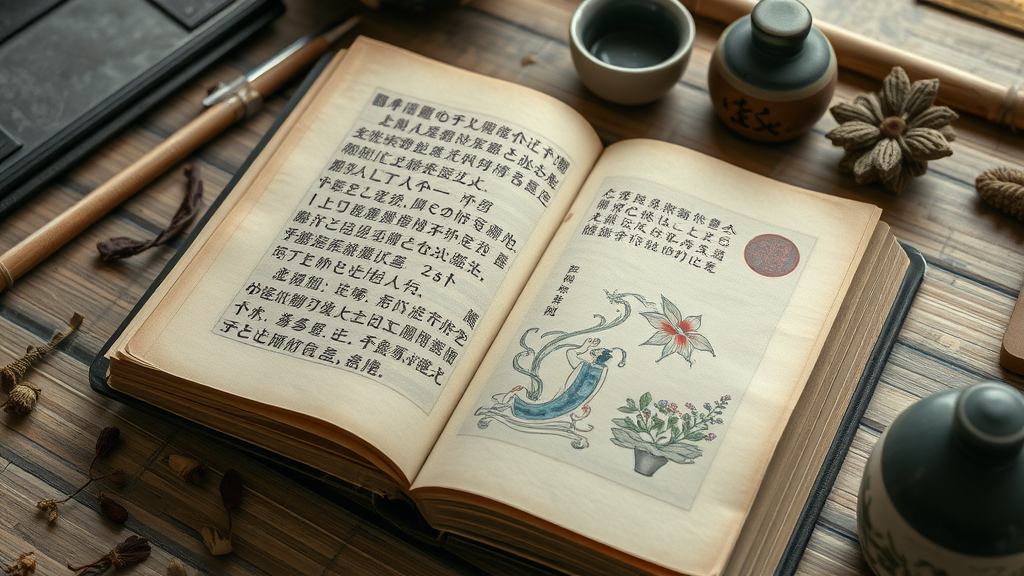
The long history of chinese herbal medicine reveals an intricate web of observation, practice, and record-keeping. Some of the oldest medical texts—like the Shang Han Lun and Ben Cao Gang Mu —laid the foundation for herbal blends designed to support women’s health, stress resilience, and overall hormonal harmony. These ancient manuals remain central in both everyday clinical practice and academic study, offering insight into which herbs are believed to harmonize the body's “internal climate.”
-
Shang Han Lun
-
Ben Cao Gang Mu
-
Daoist healing practices in hormone balancing
"TCM doesn’t just treat symptoms; it aims for harmony in the body’s systems."
Daoist healers, as early as 2000 years ago, emphasized mind-body balance. They intuitively recognized links between stress, menstrual cycles, and vitality—well before hormone testing existed. Today’s modern science is starting to confirm these intuitive connections, setting the stage for a true East-meets-West synthesis in hormone health.
The Bridge: How Modern Science Analyzes Traditional Chinese Medicine Adaptogens
Clinical Trials on Traditional Chinese Medicine Adaptogens
To validate claims made by TCM, modern medicine relies on clinical trials . Well-designed studies are essential to distinguish genuine adaptogenic effects from folk wisdom. For instance, randomized controlled trials (RCTs) have demonstrated that ginseng can decrease cortisol (a primary stress hormone) after several weeks of use, and schisandra supports adrenal health, as measured by both subjective symptoms and hormone panels. The chart below summarizes where tradition and modern data most clearly diverge and overlap.
-
Recent studies and results
-
Ginseng’s effect on stress hormones
-
Schisandra and adrenal support
-
Evidence summary table on adaptogens
|
|
|
|
Adaptogen Clinical Evidence Summary |
|
Adaptogen |
Traditional Use |
Clinical Evidence |
Main Hormonal Impact |
|---|---|---|---|
|
Ginseng |
Energy, balance |
Lower cortisol (3 RCTs) |
Cortisol, Testosterone |
|
Dang Gui |
Women's health |
Improved menstrual regularity |
Estrogen, Progesterone |
|
Schisandra |
Liver & stress |
Antioxidant, lower stress |
Cortisol |
"While traditional Chinese theories are intriguing, randomized controlled trials bring a new dimension of credibility to adaptogenic herbs." – Dr. Wei Zhang, Integrative Medicine Specialist
Herbal Medicine: The Core Pillars of Traditional Chinese Medicine
Classic Chinese Herbal Formulas for Hormone Balance
Classic herbal medicine in TCM is deeply rooted in pattern recognition and personalized care. The famous formulas Liu Wei Di Huang Wan , Xiao Yao San , and Ba Zhen Tang are still prescribed by TCM practitioners for hormone-related complaints—ranging from menstrual irregularities to chronic fatigue. These blends balance Yin, support Blood, or harmonize Liver Qi, showcasing a holistic approach rarely matched by chemical single-drug therapies.
-
Liu Wei Di Huang Wan: Nourishing Yin
-
Xiao Yao San: Harmonizing Liver Qi
-
Ba Zhen Tang: Blood replenishing and energy
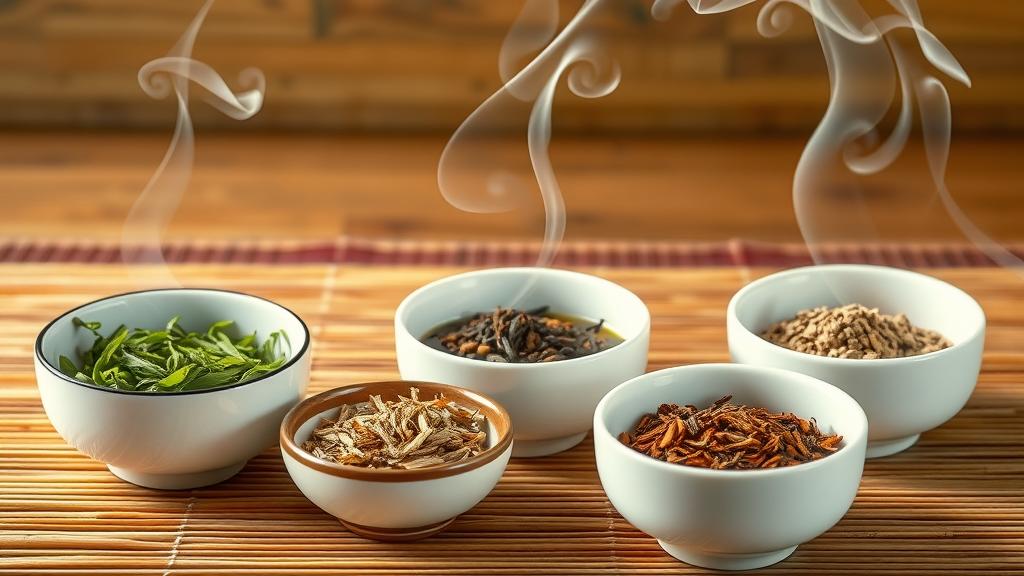
"Formulations are as much an art as a science in Chinese herbal medicine."
Unlike Western pharmaceuticals, which isolate active compounds, Chinese herbal blends combine multiple herbs to address not just primary concerns, but also side effects and underlying weaknesses in the human body . This synergy, passed down over thousands of years , is a vivid illustration of how tradition and empirical wisdom continue to inform clinical practice today.
Western Medicine and Traditional Chinese Medicine: Collaboration and Conflict
What Do Western Doctors Think of Chinese Medicine?
The relationship between western medicine and traditional Chinese medicine has long been marked by skepticism. Western physicians often cite the lack of standardization and rigorous clinical trial data as reasons for caution. Yet, with patient-driven demand for natural, holistic care on the rise, major medical centers now explore ways to integrate TCM therapies into conventional care—especially for symptoms that resist standard pharmaceutical approaches.
-
Skepticism rooted in lack of standardization
-
Integration in major academic medical centers
-
Patient-driven demand for complementary medicine
Prestigious institutions such as Harvard and the Mayo Clinic now host programs focused on integrative medicine , uniting the clinical rigor of Western labs with the wisdom found in TCM texts and clinical studies . These cross-disciplinary partnerships are setting the stage for future breakthroughs in hormone health.
Western Medicine vs. Traditional Chinese Approaches: The Science and the Wisdom
One of the most profound differences between the two traditions lies in diagnosis and treatment . While Western medicine prioritizes clear, measurable biomarkers, TCM looks for underlying “patterns” that may not map neatly onto lab values. However, the synergy is increasingly obvious: TCM’s big-picture approach can augment and accelerate healing when used alongside Western diagnostic tools.
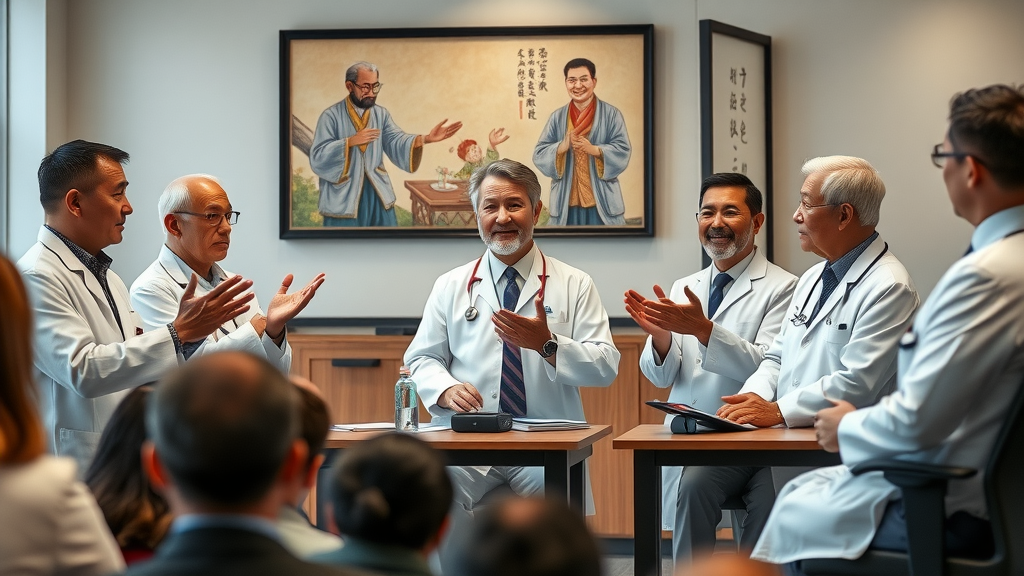
-
Key differences in diagnosis and treatment
-
Potential synergies for hormone health
-
Emerging integrative medicine clinics
Emerging integrative clinics and academic institutions demonstrate that collaboration—not competition—can create the most potent, personalized care plans. By combining ancient pattern differentiation with modern lab-based tracking, both patients and providers achieve better outcomes and a deeper understanding of the ne system , mind-body connection, and hormone optimization.
The Seven Pillars and Six Techniques of Traditional Chinese Medicine
The 7 Pillars of Traditional Chinese Medicine
The foundation of traditional Chinese medicine rests on seven synergistic practices, each reinforcing the others for comprehensive body-mind wellness. These pillars reflect the philosophy that no single therapy is a cure-all; instead, healing stems from addressing lifestyle, movement, and emotional balance as a web of health.
-
Herbal medicine
-
Acupuncture
-
Nutrition
-
Movement (Qi Gong/Tai Chi)
-
Massage (Tui Na)
-
Meditation
-
Lifestyle management
Understanding these pillars enables patients and providers to draw from a full spectrum of interventions—blending targeted adaptogens with supportive practices like meditation or therapeutic movement.
What Are the Six Traditional Chinese Medicine Techniques?
Within TCM, six primary techniques provide specific routes for balancing Qi, Blood, and hormones. Each comes with unique applications: herbal medicine to adjust internal chemistry, acupuncture to direct energy flow, cupping and gua sha for tissue detoxification, Tui Na massage for muscular and nervous system regulation, and moxibustion for warming and revitalizing weak organ systems.
-
Herbal medicine
-
Acupuncture
-
Cupping
-
Gua Sha
-
Tui Na
-
Moxibustion
Trained TCM practitioners may use one or all of these in tandem, creating bespoke health plans tailored to the individual’s root imbalances—a markedly different approach from Western protocol-driven medicine.
Why Is TCM Not Accepted?
-
Lack of rigorous clinical trials
-
Regulatory and safety challenges
-
Skepticism of traditional practices in modern medicine
Despite thousands of years of safe use, traditional Chinese medicine often faces skepticism due to limited high-quality clinical studies and philosophical differences with western medicine . Safety is also a concern, particularly for herbs sourced from unregulated suppliers. However, as the body of reliable clinical trial data grows and regulatory standards improve, perceptions are steadily shifting.
The Neuroendocrine System: Where East Meets West
-
Role in hormonal regulation
-
Stress, mood, and metabolism in Chinese medicine
Both paradigms now converge around the neuroendocrine (ne) system—a central regulator of stress, mood, and hormonal function in the human body . TCM views this system through the language of Qi, Blood, and emotional balance, while biomedicine uses neurochemistry and hormone cascades. Bridging these concepts opens the door for richer, more comprehensive hormone care.
"The ne system is the thread that links mind, body, and hormones in both paradigms."
Top Evidence-Based Adaptogenic Chinese Herbs for Hormone Balance
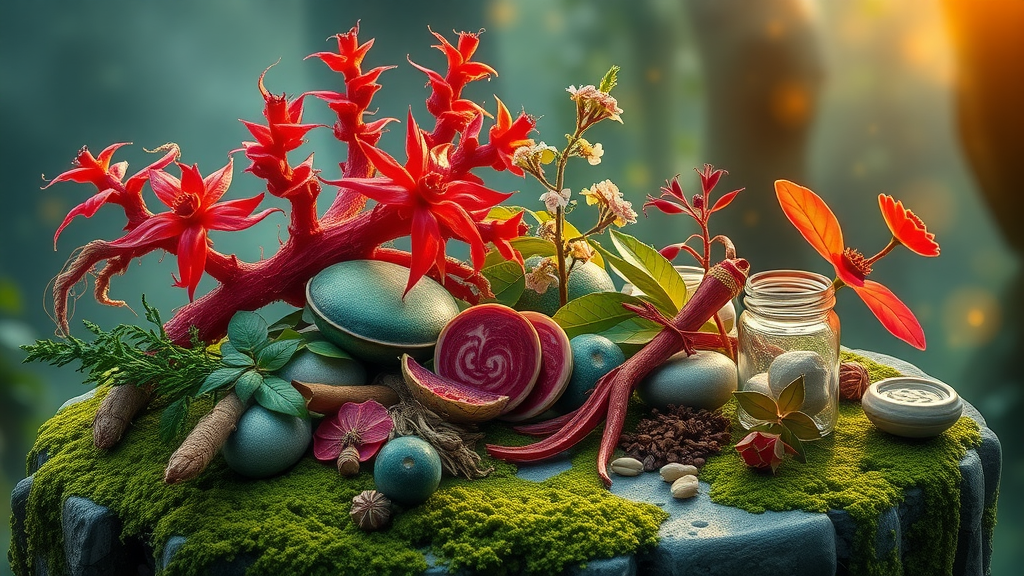
-
Ginseng (Ren Shen): Stress & adrenal balance
-
Schisandra (Wu Wei Zi): Adaptability and energy
-
Dang Gui (Angelica Sinensis): Female hormone support
-
He Shou Wu (Fo-Ti): Anti-aging and vitality
-
Rehmannia (Shu Di Huang): Kidney essence and restoration
"Modern clinical trials increasingly confirm what chinese medicine practitioners have championed for millennia."
These top five adaptogenic herbs are not only supported by ancient Chinese wisdom but are increasingly validated by modern science . Each one works on multiple levels—supporting adrenal health, balancing female hormones, fostering resilience, and promoting healthy aging—making them keystones in holistic hormone health planning.
Integrating Traditional Chinese Medicine Adaptogens with Modern Scientific Hormone Testing
Practical Steps for East-West Integrative Hormone Care
-
Baseline bloodwork (estrogen, cortisol, thyroid)
-
Using adaptogens to address imbalances
-
Measuring improvement in hormones and symptoms

The most impactful strategy for hormone balance today is integration—using both modern scientific diagnostics and evidence-based adaptogenic herbs . Starting with laboratory evaluations, providers identify hormonal imbalances, then recommend tailored Chinese herbal blends. After several months, hormone tests and symptom tracking are repeated to monitor progress, ensuring personalized, measurable results.
"A personalized approach blends the diagnostic rigor of western medicine with the ancient intuition of the traditional Chinese system."
This collaborative model harnesses the best of both worlds, supporting patients’ self-healing capacities while providing the scientific accountability demanded by modern medicine.
Safety, Quality, and Regulation of Chinese Herbal Medicines
-
Sourcing and purity
-
Adulteration and contamination risks
-
Best practices for safe use of chinese herbal supplements
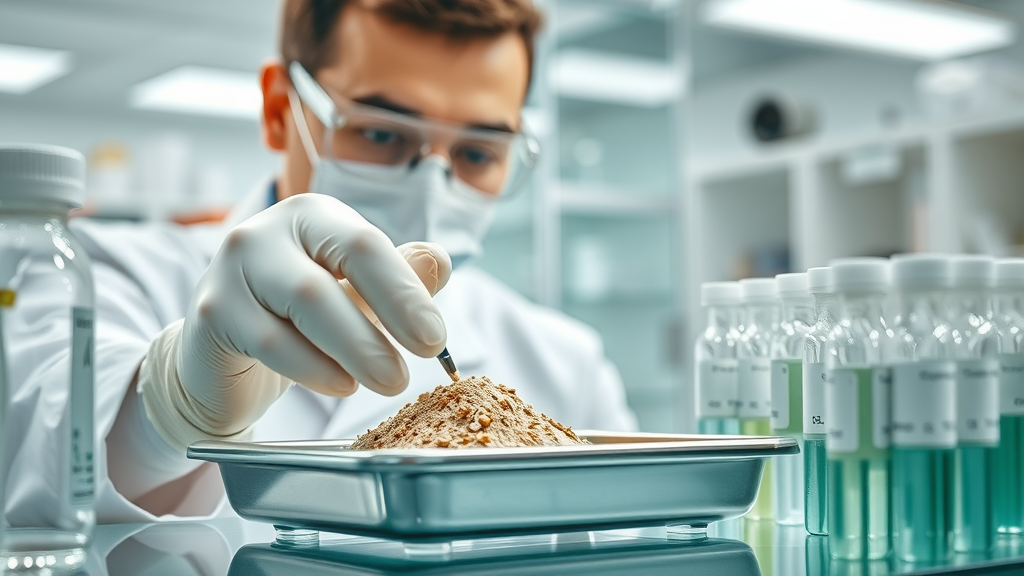
With the increasing popularity of chinese herbal supplements, quality control is paramount. Consumers must be vigilant about product sourcing, checking for reputable brands with third-party purity testing. Adulteration, contamination with heavy metals, and improper formulation can undermine both safety and efficacy. Best practices include consulting integrative or TCM practitioners , confirming supplier credentials, and avoiding unverified online sources.
"Always consult a healthcare provider trained in both traditional chinese and western medicine before starting adaptogenic herbs."
By prioritizing quality and expert guidance, patients maximize the benefits of herbal medicine while minimizing risks—an essential prerequisite for sustainable, balanced hormone health.
Real-Life Stories: Transformative Experiences from Traditional Chinese to Modern Science
-
Case study: Perimenopause and Chinese herbs
-
Case study: Stress and ginseng
-
Case study: Adrenal fatigue and Schisandra
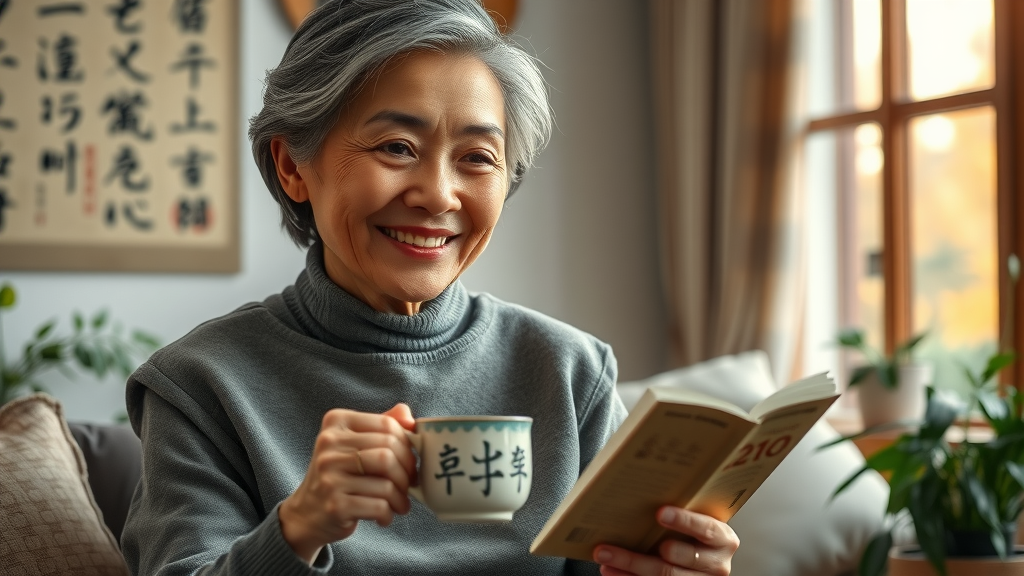
Meet Linda, a 48-year-old professional experiencing perimenopause , who struggled with sleep, mood swings, and night sweats. After standard hormone therapy failed, she worked with a TCM practitioner who prescribed a blend of Dang Gui and Liu Wei Di Huang Wan . Within months, her symptoms eased significantly, a transformation corroborated by improved hormone labs.
Mike, a 35-year-old stressed executive, found relief from chronic fatigue and high cortisol through a combination of daily ginseng supplements and acupuncture. And Sara, diagnosed with adrenal fatigue, reported renewed energy and focus after adding schisandra-based tinctures to her care plan—all with the oversight of integrative medicine specialists leveraging both ancient wisdom and modern science .
Practical Ways to Add Evidence-Based Adaptogens into Your Hormone Health Routine
-
Choosing high-quality adaptogenic chinese herbs
-
Daily routine: Teas, tinctures, capsules
-
Working with integrative practitioners for tailored results
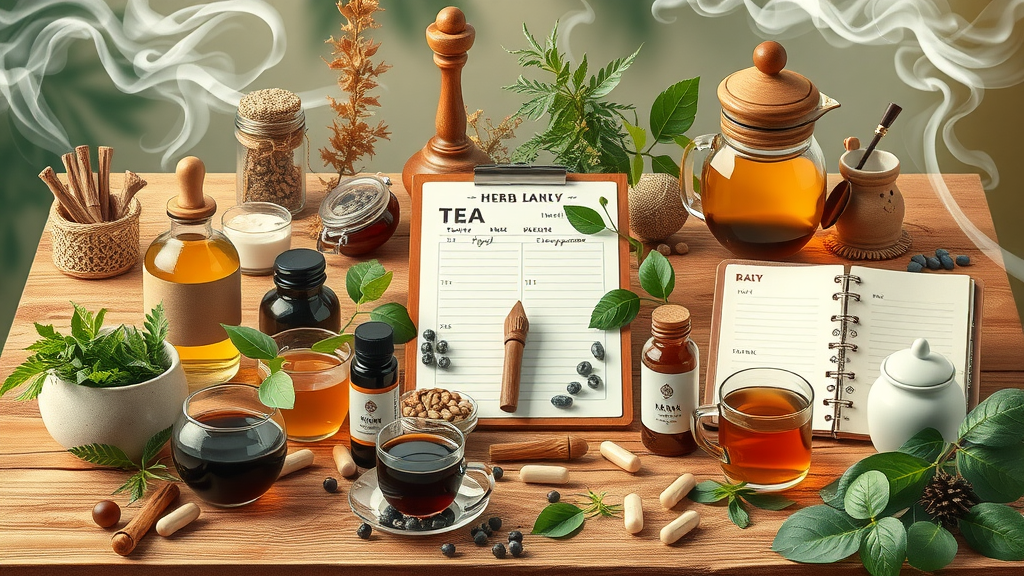
Adding evidence-based adaptogens into your self-care routine doesn’t have to be complicated. Start by sourcing certified, reputable Chinese herbal products in forms that fit your lifestyle—whether teas, capsules, or tinctures. For best results, collaborate with an integrative practitioner trained in both traditional Chinese medicine and modern science . They’ll match formulas to your personalized symptom pattern and monitor your hormone panels as you progress.
Remember, regular, consistent use is key—chronic stress and hormonal fluctuations often require several weeks (or months) of support for tangible change. Keep a journal to track symptoms and follow up with lab tests, adjusting your regimen for optimal outcomes and maximum safety.
FAQs about Traditional Chinese Medicine, Modern Science, and Adaptogens
-
Is Chinese medicine safe for hormonal issues? When practiced by a qualified provider and using high-quality herbs, Chinese medicine is generally safe and well-tolerated for hormone issues. However, safety concerns can arise from contaminated or unstandardized products, so it’s important to work with a credentialed practitioner and choose tested supplements.
-
How soon can you expect results from adaptogenic herbs? Most people notice gradual improvements in 2–8 weeks, but results depend on individual health, chosen herbs, and regularity of use. Chronic hormone imbalances might require several months of consistent herbal therapy monitored by lab tests and symptom diaries.
-
Are there any contraindications with Western medication? Some adaptogens, especially potent formulas, can interact with prescription drugs. Always share your full medication list with your healthcare provider, and consult both your medical and TCM practitioners before starting a new herb or supplement.
Key Points: What You Need to Remember about Traditional Chinese Medicine, Modern Science, and Hormone Balance
-
Traditional Chinese medicine offers time-honored, holistic approaches to hormone balance.
-
Modern science is validating select adaptogenic herbs with robust clinical data.
-
The integration of east and west practices empowers both preventive and restorative health.
Quick Reference: Table of Traditional Chinese, Modern Science Clinical Trials, and Adaptogen Hormonal Effects
|
|
|
|
Traditional Chinese Adaptogens and Hormone Evidence |
|
Herb |
Classically Used For |
Modern Evidence |
Hormones Targeted |
|---|---|---|---|
|
Ginseng |
Fatigue, Yang support |
Reduces stress, boosts androgens |
Cortisol, Testosterone |
|
Dang Gui |
Menstruation |
Menstrual regulation, PMS relief |
Estrogen, Progesterone |
|
Schisandra |
Longevity, stress |
Lower stress hormones, improve mood |
Cortisol, Estrogen |
Expert Quote Highlight: Synthesizing Traditional Chinese Medicine and Modern Science
"The future of hormone health lies in understanding both the deep roots of Chinese medicine and the clinical rigor of modern science." – Dr. Lin Zhao, PhD, Functional Medicine
Choose Your Path: Embracing East Meets West in Your Hormone Health Journey
-
Consider evidence, tradition, and personal responsiveness
-
Consult both TCM and qualified medical professionals
-
Track symptoms and hormone panels to optimize results
People Also Ask: What Do Western Doctors Think of Chinese Medicine?
-
Many western doctors recognize the value of traditional chinese medicine for symptoms poorly addressed by conventional care. However, most await further clinical trial evidence before fully embracing TCM practices. Integration is growing, especially in academic and integrative clinics.
People Also Ask: What Are the 7 Pillars of Traditional Chinese Medicine?
-
The 7 pillars are: herbal medicine, acupuncture, dietary therapy, exercise (like tai chi), massage (tui na), meditation, and lifestyle coaching. Each pillar works synergistically to create balance and resilience.
People Also Ask: Why Is TCM Not Accepted?
-
Traditional Chinese Medicine faces skepticism due to limited high-quality clinical trials, concerns about quality control, and philosophical differences with Western evidence-based standards. As research grows, perceptions are slowly shifting.
People Also Ask: What Are the Six Traditional Chinese Medicine Techniques?
-
The six TCM techniques are: herbal therapy, acupuncture, cupping, gua sha, tui na (massage), and moxibustion. Each has specialized applications for restoring balance and promoting health.
Video: The Scientific Revolution in Traditional Chinese Medicine Adaptogens
Video: How To Integrate Traditional Chinese, Modern Science, and Evidence-Based Adaptogens in Daily Life
Video: Real People, Real Stories—Traditional Chinese Herbs for Hormone Health in the Modern World
Video: The Seven Pillars of Traditional Chinese Medicine Explained by Modern Scientists
Video: Clinical Trials and Modern Proof—Bridging East Meets West in Hormone Health
Start your own East-meets-West hormone journey by consulting both TCM and Western practitioners, choosing quality herbs, tracking your results, and integrating the strengths of both worlds—for bodywide harmony and optimal health.
Integrating Traditional Chinese Medicine (TCM) with modern scientific research has led to a deeper understanding of adaptogenic herbs and their role in hormone balance. For instance, the article “Merging Traditional Chinese Medicine with Modern Drug Discovery Technologies to Find Novel Drugs and Functional Foods” discusses how combining TCM with contemporary drug discovery methods has resulted in the development of new pharmaceuticals and functional foods. ( pmc.ncbi.nlm.nih.gov ) Additionally, “What has traditional Chinese medicine delivered for modern medicine?” explores the contributions of TCM-derived medicines, such as artemisinin, to modern medical practices. ( cambridge.org ) These resources provide valuable insights into the synergy between ancient herbal wisdom and current scientific advancements, offering a comprehensive perspective on adaptogens for hormone health.
 Add Row
Add Row  Add
Add 



Write A Comment